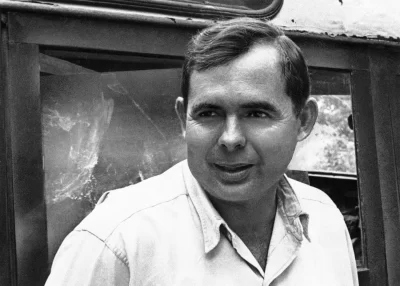
MEMPHIS, Tenn. — About 21 hours of newly released video and audio are revealing more about what first responders including the five fired police officers charged in the violent beating death of Tyre Nichols did and said the night Nichols was pulled over and mortally injured.
The dozens of recordings were made public Tuesday by Memphis city officials based on a state judge’s order, which came down the same day that former officer Desmond Mills Jr. pleaded guilty in November to federal charges in the case that sparked outrage around the world and intensified calls for police reform. City officials also plan to release additional written documents in two weeks.
Mills also intends to plead guilty in state court and could testify against his four ex-colleagues — Tadarrius Bean, Demetrius Haley, Emmitt Martin and Justin Smith — who remain charged with civil rights violations in federal court and second-degree murder and other offenses in state court. They have pleaded not guilty.
The recordings released Tuesday add hours of context to the police video released weeks after the January 2023 traffic stop, which showed the five officers beating Nichols as he yelled for his mother, steps from his house. The new material shows what officers and others did and said before, during and after the beating.
Much of their comments suggest officers and paramedics appeared fixated with the idea that he was high on drugs. Medics administered Naloxone to reverse a potential opioid overdose as Nichols slouched, unresponsive, after officers propped him up against a car. One emergency medical technician even claimed, “He’s not injured. He’s just high.”
Nichols’ autopsy later detected only low levels of alcohol and THC, the active ingredient in marijuana, in his system.
Two EMTs and a fire lieutenant were fired in the Nichols case.
As for what prompted the traffic stop, Bean’s bodycam recorded another officer saying that Nichols “drove into oncoming traffic” and “swerved like he’s going to hit my car” after they turned on sirens and ordered him to stop. But the same officer also said Nichols “stopped at the red light and put his turn signal on.”
The police chief later said the department couldn’t substantiate any reason for the stop.
The officer said they got out to pursue him and that’s apparently when Nichols fled on foot towards his home, to where the beating would occur, less than a block from his front door.
Other officers recorded themselves saying Nichols had tried to grab an officer’s gun, which none of the videos clearly show, and that he resisted arrest, even though Nichols appeared to be complying with their commands.
Later, some officers appeared perplexed that no drugs were in the car Nichols was driving. One suggested he could have thrown something while he was running.
Mills’ body camera also recorded how he and his superior officer spoke to Nichols’ mother and stepfather. When the stepfather answered the door and asked what Nichols is in custody for, Lt. Dewayne Smith appeared not to know until Mills said “DUI.” Then the lieutenant repeated “DUI.”
“I’m trying to find out if you know him to take any kind of drugs or narcotics or anything,” the lieutenant said. When Nichols’ mother, RowVaughn Wells, answered “no,” he said, “because he appeared to be on something other than alcohol.”
Wells then said Nichols smokes a little marijuana, and Lt. Smith responded: “He on something more than marijuana.”
Wells then tried repeatedly to learn where her son was, but the lieutenant was evasive, saying he is “with the paramedics” and “they got him a little ways from here” and “he’s in the neighborhood.” Finally he told her, “He’s going to go to jail after he gets some medical treatment.”
As they walked away, Mills told the lieutenant he believed the parents “know more than what they are saying” and seemed suspicious because they didn’t open their screen door. Then he said, “I just hope … he just needs to make it, that’s all. He needs to make it. He ain’t looking too good.”
Dewayne Smith, who is not facing criminal charges, retired before police would have fired him.
About an hour after officers pulled Nichols from his car, his mother showed up at the intersection of the initial traffic stop, along with his stepfather, and started asking Officer Preston Hemphill what happened.
When Hemphill said Nichols fought with officers, the mother sounded incredulous.
“My son? Not Tyre,” she said, later adding, “That don’t sound like my son. I’m sorry, sir.”
Hemphill fired his stun gun during the traffic stop but didn’t follow Nichols to where other officers pummeled him. Hemphill was fired but isn’t facing criminal charges.
Attorneys for Nichols’ family said they are reviewing the additional video, but expect it will “affirm what we have said from day one: that there was absolutely no justification for the officers’ brutal and inhumane actions.”
“We will continue our unflinching look at this tragedy and stand strongly with Tyre’s family in their continued grief and fight for justice,” attorneys Ben Crump and Antonio Romanucci said in a news release.
The Associated Press requested comments from attorneys for the former officers facing charges. Attorneys for Mills, Haley and Justin Smith declined to comment.
Nichols died in a hospital Jan. 10, 2023 three days after he was kicked, punched and hit with a police baton.
Nichols was Black. The five officers also are Black. The four who remain charged face federal trial in May and state court trial in August.
Following the January 2023 release of police body camera and pole camera footage, the city had planned to release about 20 more hours of video, audio and documents including the officers’ personnel files, but the judge granted the defense’s motion for a delay “until such time as the state and the defendants have reviewed this information.”
A coalition of media organizations, including The Associated Press, cited the First Amendment in pressing to have them made public. Lawyers for the former officers argued that their rights to a fair trial must be recognized and protected.
The U.S. Department of Justice opened a “patterns and practices” investigation into how Memphis Police Department officers use force and conduct arrests, and whether the department in the majority-Black city engages in racially discriminatory policing.
In March, the Justice Department announced a separate review concerning use of force, de-escalation strategies and specialized units in the Memphis Police Department. Also, Nichols’ mother has sued the city and its police chief over her son’s death.




